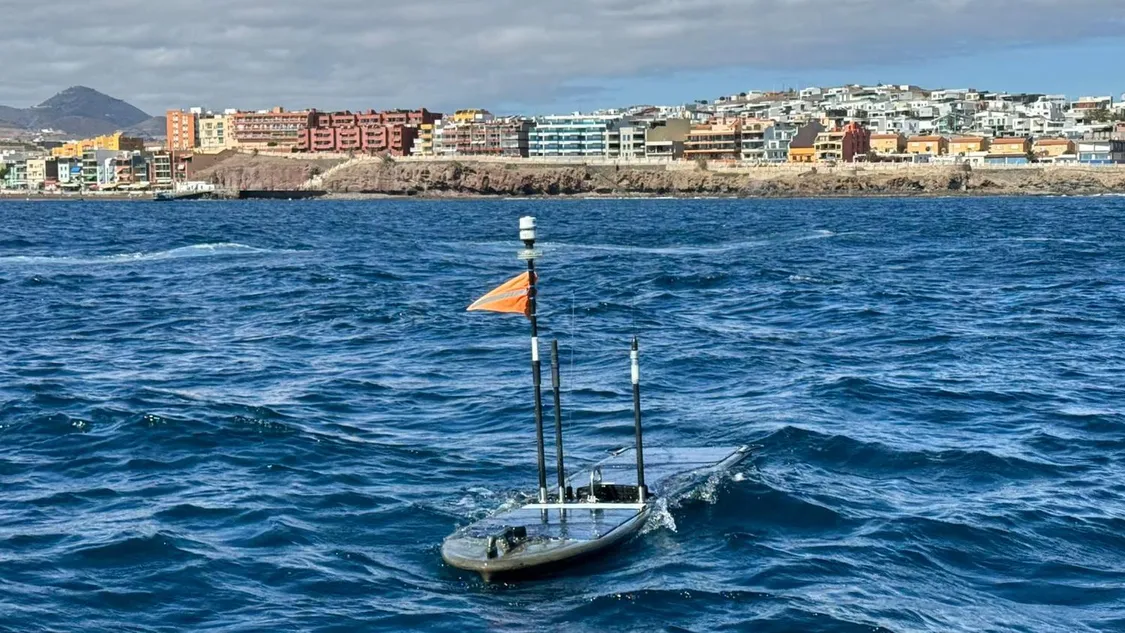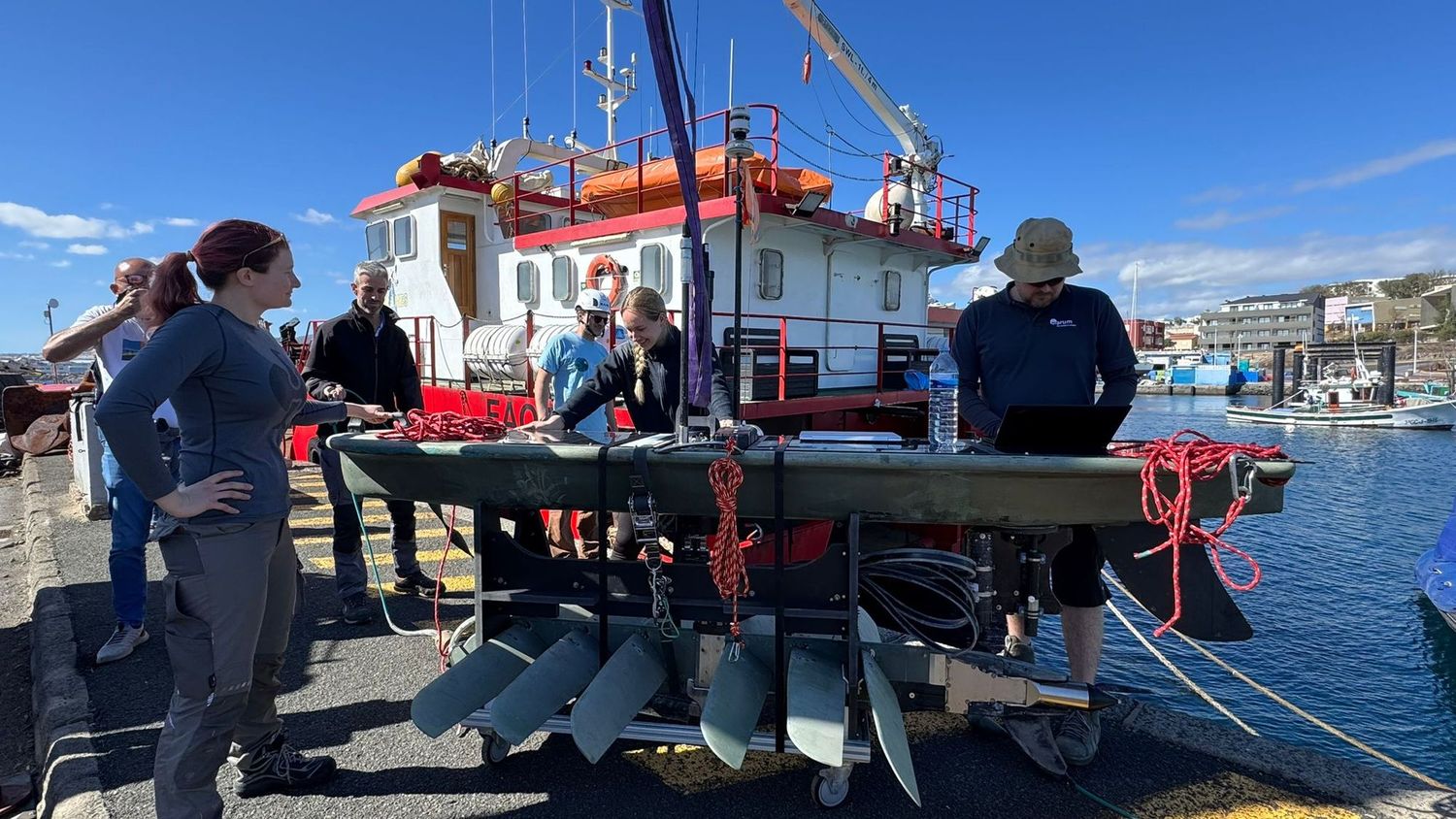The Canary Islands Oceanic Platform (PLOCAN) and MISSION ATLANTIC have launched a scientific mission on Saturday, January 25, 2025, to study the characteristics of the Macaronesian marine ecosystem between the Canary Islands and Cape Verde, using an unmanned marine observation vehicle WaveGlider.
In particular, the passive acoustic sensors installed in the trailer module stand out, which will make it possible to record the presence of certain species of marine mammals and fish along the planned route, through the detection of their characteristic acoustic traces.
The WaveGlider is operated and monitored remotely and continuously by technicians from the Canary Islands Oceanic Platform (PLOCAN) and DTU - Technical University of Denmark through bidirectional satellite telemetry and navigation aid tools integrated into a real-time piloting interface.
Check out the WaveGlider journey and the WaveGlider Map, to track how the Wave Glider collects 3D information on essential ocean variables (physical, chemical and biological).
Read more on www.canarias7.es:
Una misión científica entre Canarias y Cabo Verde | Canarias7

MISSION ATLANTIC WaveGlider on Mission
